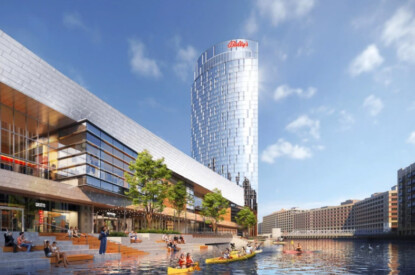SPORTS BETTING
US – Chicago City approves sports betting in stadiums and in future casino
By Phil - 16 December 2021
Chicago City Council has ended its ban on sports betting with sportsbooks to open in and around stadiums in the city including Soldier Field, Wrigley Field, Guaranteed Rate Field, the United Center and Wintrust Arena.
A two per cent tax will be imposed on betting revenue and will generate $400,000 to $500,000 each year from estimated revenues of $25m. Two types of sports betting licenses will be issued; ‘primary,’ which start at $50,000 a year and cost $25,000 for annual renewal and secondary, which kick off at $10,000, with an annual renewal fee of $5,000.
A stadiums a maximum of 15 kiosks or betting windows will be permitted at each location unless bettors can also buy food and drink. No one under age 21 would be allowed to place a bet. Sports betting will also be allowed inside inter-track betting facilities and inside a Chicago casino, once it is built.
Rush Street Gaming owner Neil Bluhm, who is looking to build a Chicago casino, said: “While people are betting on sports at Wrigley Field or United Center, fantastic locations will open two-and-a-half years before a casino so people will be used to going there,they won’t be at the casino betting on casino games. For every $1 of sports betting you’re losing, you lose about $3 or $4 of casino revenue. While they’re there, they walk around and play slot machines. They play roulette. They play blackjack. That’s big money.”
Chicago Cubs Chairman Tom Ricketts said: “As shown by the experience in other jurisdictions, testimony of large casino operators and the conclusion of the only independent study — the study commissioned by the city — this will not have an economic impact on the viability of any potential future Chicago casino. The fact is, sports gaming is less than two per cent of casino revenue, and there is no evidence that even that would be affected by this ordinance.”
“Every sports venue is looking for ways to contribute to the economic health of our neighborhoods on non-game days,” he added. This ordinance will attract more people on days when we don’t have games and generate more activities on game days themselves.”
“This ordinance is also good for our sports teams. Incremental attendance and marketing relationships with our sports gaming partners will provide our sports teams with extra resources that can be used to put more competitive teams on the field and, importantly help us keep up with other teams that are monetizing their sports gaming opportunities.”



